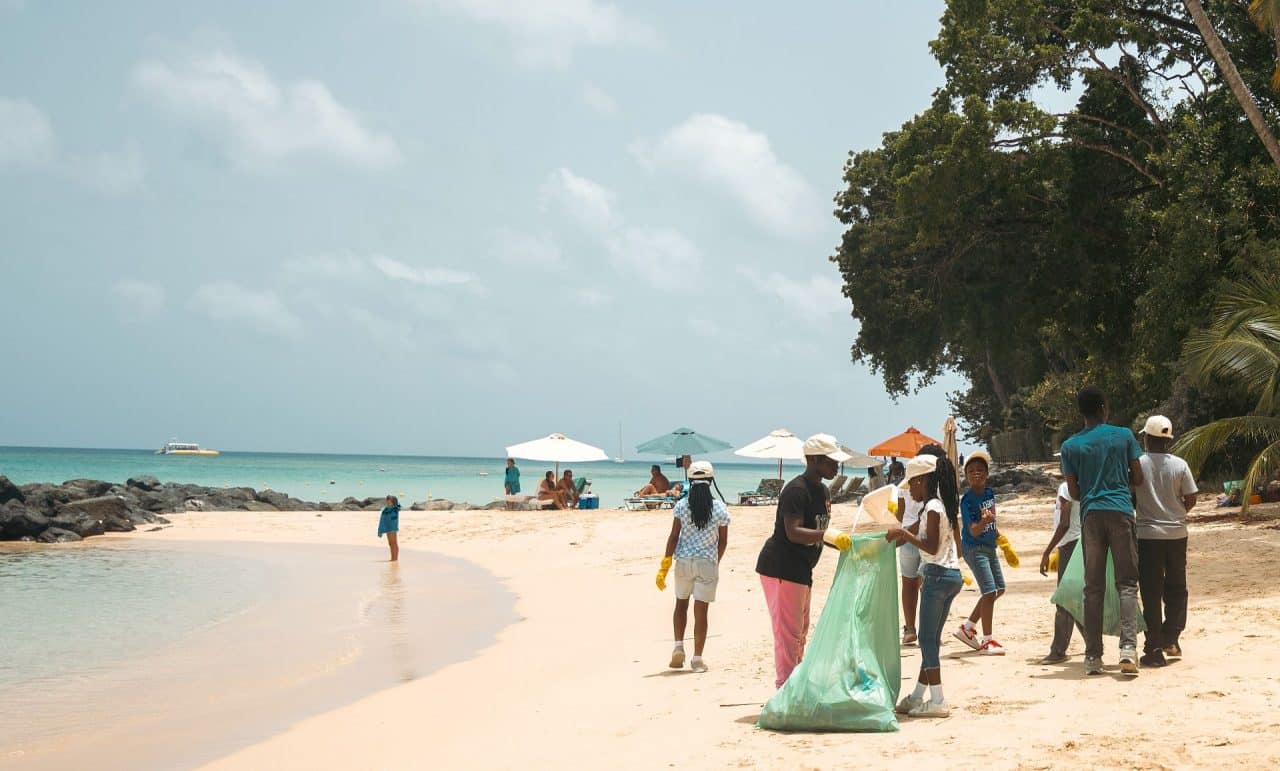Our story


Imagine a future freed from plastic pollution
Our journey began with our founder, Jo Royle, a former trans-ocean yacht skipper who witnessed first-hand the spread of plastic across the seas, and created Common Seas to help stop marine plastic pollution.
Since then, we have grown into an international organisation working through research, education and policy to tackle plastic pollution at its source.
The spirit of practical action and collaboration has guided our development and successful programme delivery over the years.
2019: A new, rapid assessment tool

The Maldives
In collaboration with 24 governments, more than half of which are Small Island Developing States, we created the revolutionary Plastic Drawdown tool.
Plastic Drawdown is a rapid assessment framework that helps countries understand the flow of plastic waste and identify the most effective policy responses. It is designed to work effectively with limited data and resources, helping SIDS chart bold, practical action against plastic pollution.
Deployment in the Maldives led to a national commitment to phase out single-use plastics announced at the UN General Assembly in 2019 (pictured).

Indonesia
We deployed Plastic Drawdown in Indonesia at the request of the Indonesian government. The analysis showed that millions of nappies (diapers) were being dumped into the Brantas River each year leading to one of our most impactful demonstration projects, Bumbi.
Bumbi is a reusable diaper programme that has involved thousands of families along the Brantas River. It has prevented over 1.5 million ‘single-use’ diapers from entering the river, saved families money, and prevented nappy rash and urinary tract infections in thousands of babies.

Greece
In Greece, we helped the island of Paros rethink tourist waste through demonstration projects on refill stations, reusable hospitality materials, and cigarette butt disposal. Other highlights included:
- Working with over 100 hospitality businesses to help them measure and reduce or eliminate single-use plastics
- Conducting community-led beach litter audits to understand the plastics entering Paros’ beaches and sea
- Installing gamified ashtrays to stop the littering of cigarette butts on Paros
- Incentivising the use of tap water by testing its quality, installing water filters in schools, and a successul ‘Drink tap’ campaign
Our educational resources soon gained approval for use in schools nationwide.
2021: Youth at the heart of the action

We know that real change requires the next generation. In 2021, with our partners Kids Against Plastic, we launched Plastic Clever Schools to equip young people with the knowledge, skills, and confidence to take action on plastic.
First launched in the UK, it has since grown into an international movement. Officially endorsed as a UN Ocean Decade Project in 2025, it now reaches over 1,500 schools in over 50 countries including Barbados, Greece, and Belgium, with more on the way.
2022: Discovery of plastic in our blood

In 2022, our research with Vrije Universiteit Amsterdam discovered the presence of microplastics in human blood. The researchers found tiny pieces of plastic in 77% of the samples tested.
The story went around the world, supported by our award-winning Blood Type Plastic+ campaign. Since then, we’ve continued to advance new research into plastic food packaging and the gut with Imperial, and presenting new research into microplastics and blood clotting in 2025.
2024: Leading policy changes through partnerships

In 2024, Dr Charlotte Davies took the helm of Common Seas as our new Managing Director.
In Barbados, our work supported the government’s publication of its National Action Plan on Plastic Pollution.
With support from the UK government’s Sustainable Blue Economies programme, we expanded our work to Guinea-Bissau, Grenada, Papua New Guinea, Tuvalu, and Saint Lucia, to develop five new National Action Plans.
In early 2025, President Adama Barrow signed the National Action Plan to End Plastic Pollution in The Gambia that his government had developed with Common Seas, committing his country to reducing their plastic pollution by 86% over the next decade.
Looking ahead
Our story is still being written. With courage, a commitment to systemic change, and a collaborative approach, we’re working with our partners to stop the flow of plastic pollution.
